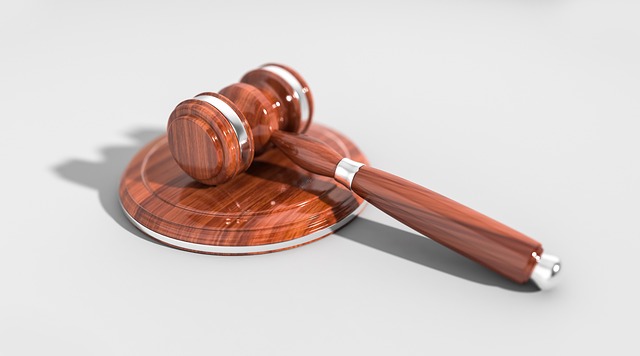Criminal law, a complex system of rules and regulations, defines and punishes crimes, maintains social order, and provides justice. It ranges from misdemeanors to felonies with varying penalties, emphasizing proof beyond reasonable doubt. The modern system involves law enforcement investigations, evidence gathering, and fair trials. Key trends include data analytics for efficient investigations, predictive modeling, and a shift towards restorative justice and mental health treatment alternatives to incarceration. High-profile cases set legal precedents and spark debates on reform, while technology, such as digital forensics and data analytics, is transforming criminal law practices globally.
Dive into the intricate world of criminal law, where justice meets punishment. This comprehensive guide explores key concepts, recent trends, and technological advancements shaping modern legal practices. From defining crimes to understanding high-profile cases, we dissect the complexities affecting legal precedents. Discover how societal shifts reflect in criminal justice, uncovering a dynamic landscape where every case tells a story of balance between protection and accountability. Uncover the latest news and insights into this ever-evolving field of law.
- Understanding Criminal Law: Definitions and Key Concepts
- Recent Developments and Trends in Criminal Justice
- High-Profile Cases and Their Impact on Legal Precedents
- The Role of Technology in Modern Criminal Law Practices
Understanding Criminal Law: Definitions and Key Concepts

Criminal law is a complex and multifaceted legal system designed to address and punish crimes, protect society, and ensure justice. It involves a set of rules and regulations that define what constitutes a criminal offence, how investigations are conducted, and the consequences for those found guilty. Understanding this legal framework is essential for both legal professionals and individuals seeking to navigate potential criminal matters.
At its core, criminal law defines various types of crimes, ranging from misdemeanours to felonies, each carrying distinct penalties. Key concepts include elements of an offence, such as actus rea (criminal intent) and causation, which must be proven beyond a reasonable doubt. The process involves law enforcement agencies investigating alleged offences, gathering evidence, and presenting cases in court, where the accused has the right to legal representation and a fair trial. This intricate system aims to maintain social order and deter potential criminals while providing remedies for victims.
Recent Developments and Trends in Criminal Justice

The criminal justice system is constantly evolving, reflecting societal changes and advancements in legal principles. Recent developments have been shaped by technological progress, increased focus on victim rights, and a growing emphasis on restorative justice practices. One notable trend is the rising use of data analytics to enhance investigations, improve predictive modeling for recidivism, and streamline court processes. This application of technology aims to make criminal law more efficient while ensuring fairness and transparency.
Additionally, there’s a growing recognition of the importance of mental health and substance abuse treatment as alternatives to incarceration. Many countries are implementing reforms to divert non-violent offenders into rehabilitation programs, addressing the root causes of crime rather than solely punishing offenders. These trends signal a paradigm shift in criminal law, prioritizing rehabilitation, victim healing, and community reintegration over punitive measures alone.
High-Profile Cases and Their Impact on Legal Precedents

High-profile cases often become catalysts for shaping legal precedents in criminal law, drawing significant attention from both the legal community and the general public. These high-stakes trials set important benchmarks that influence how similar future cases are handled. For instance, landmark decisions in notable criminal cases can establish new norms regarding evidence admissibility, sentencing guidelines, or interpretations of specific laws. Jurists and legal scholars closely analyze these high-profile matters, using them as reference points to interpret existing statutes and develop new legal theories.
The impact of such cases extends beyond the immediate parties involved. They often spark public debates on criminal justice reform, raising awareness about potential systemic issues. High-profile criminal law cases can also reveal gaps in current legislation, prompting legislative bodies to reevaluate and update laws to better address societal concerns. As a result, these trials not only define legal strategies but also shape the broader conversation surrounding criminal law’s role in society.
The Role of Technology in Modern Criminal Law Practices

In today’s digital era, technology plays a pivotal role in shaping and enhancing various aspects of criminal law practices worldwide. From initial investigation to evidence collection and trial presentations, legal professionals now have access to advanced tools that streamline processes and ensure efficiency. Digital forensics, for instance, has revolutionized how investigators uncover and analyze electronic evidence, offering invaluable insights into criminal activities previously hidden within complex digital landscapes.
Moreover, the advent of sophisticated data analytics enables prosecutors and defenders alike to sift through vast datasets, identifying patterns and trends in criminal behavior that might have otherwise remained undetected. This technological edge not only fortifies the prosecution’s case but also aids judges in rendering fairer decisions based on empirical evidence. As a result, modern criminal law practices are witnessing a significant transformation, where technology acts as a game-changer, fostering more informed, precise, and accessible legal procedures.
Criminal law, constantly evolving, continues to shape our understanding of justice. From defining crimes and setting penalties to adapting to technological advancements, this field ensures societal safety while upholding legal principles. By staying informed about recent developments, high-profile cases, and the integration of technology, we can navigate its complexities and promote a fair criminal justice system.
